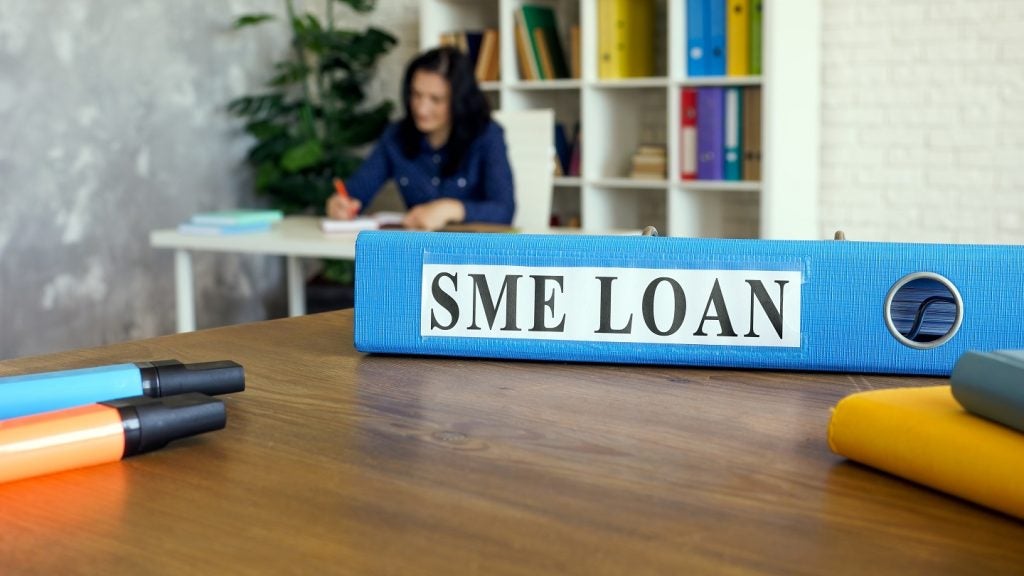
When Leasing Life spoke to the Czech Leasing and Finance Association (CLFA) in late 2013, business conditions were challenging. New business had fallen as a result of lower household expenditure with consumers feeling the effects of a decline in GDP.
While the significant fall in equipment leasing volumes recorded in 2012 had slowed down considerably by 2013, the continuing decline of B2B equipment leasing was a cause for concern and the development of leasing in non-banking financial markets was described as far from satisfactory even though most leasing companies had increased their share of credit financing in their asset finance business.
Fast-forward 30 months and the environment is much more positive. The macroeconomic framework in the Czech Republic was particularly conducive to increased lease activity in 2015 – GDP grew on a year-on-year basis (in the first quarter by 4%, in the second quarter by 4.6% and by 4.7% in the third quarter) and industrial production in November 2015 was 5.7% higher than for the same period in 2014.
In 2015, members of the CLFA provided CZK144bn or around 5.3bn of finance – an increase of just over 7% over the previous 12 months – across more than 856,000 new lease and credit transactions. Of that total, CZK114bn was for funding investments and operation of business entities.
By the end of last year there were in excess of 1.9m active lease and credit agreements.
Machinery, equipment and vehicles lease volumes recorded a year-on-year increase of 16.7% for the largest 15 lease companies, who entered into 54,400 new contracts with business entities. Just over 15,100 of these were financial lease contracts, with 10,600 operating lease contracts and a further 25,700 contracts on full service leasing.
How well do you really know your competitors?
Access the most comprehensive Company Profiles on the market, powered by GlobalData. Save hours of research. Gain competitive edge.

Thank you!
Your download email will arrive shortly
Not ready to buy yet? Download a free sample
We are confident about the unique quality of our Company Profiles. However, we want you to make the most beneficial decision for your business, so we offer a free sample that you can download by submitting the below form
By GlobalDataLeasing accounted for 35.6% of passenger car finance last year compared with 31.4% in 2014 and almost 90% of cars financed via leasing were new vehicles. The percentage of trucks financed via leasing fell slightly in 2015, but there was an increase in the share of machinery and equipment business from 23.7% to 24.8%.
The number of new lease contracts to finance business investments increased by 22.2% on a year-on-year basis. More than 7,100 fleet vehicles are financed this way and at the end of 2015, leasing of machinery, equipment and vehicles for entrepreneurs was taking place across more than 175,000 active lease contracts.
Receivables from contracts concluded for the leasing of movable assets for entrepreneurs reached CZK95.5bn at the end of 2015 as a consequence of shorter average terms of financing through leases, particularly due to growing use of short-term rentals.
These positive trends were carried into the first three months of this year, when volumes of CZK44.1bn represented a year-on-year increase of 4%. Funding of vehicles reached CZK18.7bn, just over half of which went on the acquisition of more than 25,000 new passenger cars. CLFA member companies financed 42.1 % of new passenger cars in the first quarter of 2016.
The share of consumer leasing grew last year. CLFA member companies entered into more than 9,000 new contracts for consumer leases and short-term rental, under which they passed on the use of consumer movables (mainly passenger cars) a total acquisition price of CZK2.5bn – an increase of more than a quarter on the 2014 total.
In 2015, the CLFA participated in negotiations on modification of legal regulations, including drafts of amendments to tax laws, a draft of a substantial amendment to the Act on Insurance Intermediaries and drafts of amendments to consumer credit and consumer protection laws.
In the area of legislation, the CLFA mainly focused on eliminating discriminatory elements within the tax framework of non-bank financial products and on rational regulation of financial institutions and their products.
To promote these goals, it advocated conclusions of a PwC study about the regulation of member companies of the CLFA and their financial products and discussed possibilities of tax adjustments to receivables from loans of non-bank financial institutions.
The association promoted the possibility of tax deduction of fuel and lubricant costs and lump-sum expenses for vehicles bought through a loan with securing transfer of ownership rights in the amendment of the income tax act.
It also supported modification of the conditions for activities of loan registers in the amendment to the consumer protection act.
Specifically, the CLFA’s committee for operating lease of vehicles discussed the following issues:
Development of the ‘operating lease of vehicles’ segment
- Suggestions for the upcoming amendment to the act on the conditions of vehicle operation on roads
- Promoting interests of member companies in the draft amendment to the law on insurance brokers
- The need to redefine the term ‘distributor of fuels and lubricants’ in the Fuels and Lubricants Act
- Development of equipping vehicles with telecommunications equipment
- Use of electronic service logbooks
- Preparation of the code of excessive wear of leased vehicles
- New models being prepared by some vehicle importers, and their strategy towards providers of operating leases
"The Czech leasing market is well developed and consolidated, explains Jirí Pulz, secretary general of the CLFA.
"In 2015, financial products were being offered in conditions of continued economic growth. Investments and household expenditures grew and under these circumstances, the volume of leasing business grew by more than 16%. The rise in lease financing is already in its fourth consecutive year."
He notes that while the global financial crisis resulted in an economic decline followed by a strong drop in leasing volumes of almost two-thirds, the market has found a new level at around half of the pre-crisis volume.
Another factor that has affected the market is the move by many entrepreneurs from leasing to non-banking secured credit, which is also provided by leasing companies. The volume of this type of finance rose even in the post-crisis period.
Pulz observes that while bank-owned subsidiaries continue to dominate the market, captives have made an impact in the car lease sector in particular.
"Car leasing is prospering and leasing of machinery and equipment is growing. On the other hand, real estate leasing is almost dead, with only a couple of dozen deals done in 2015. From a taxation point of view, bank credit is more advantageous and attractive for investors at the moment."
In May, the European Investment Bank (EIB) announced that it was providing a credit line of 62m to CSOB Leasing to finance projects carried out by SMEs and midcaps.
The key aim of the cooperation is to support the development and growth of Czech SMEs and midcaps by financing sound and sustainable investment projects, the renewal and upgrading of entrepreneurial equipment, environmental protection behaviour, green energy and low emission standards.
This is the sixth credit line between the two institutions. Around 1,440 projects carried out by SMEs and midcaps have benefited from the preferential terms of the EIB funding lines available to CSOB group entities in the Czech Republic since 2013.
Alois Lanegger, CEO at Raiffeisen Leasing refers to growing demand for non-bank financial products that started at the end of 2013: "Generally it can be said that non-bank funding significantly contributes to the economic development.
"It is also important to mention that the Czech Republic has the most stable and most prosperous economy of all post-Communist countries."
When asked about the most significant developments in the market over the last 12 months he refers to the development of existing products rather than the introduction of new products, for example increasing flexibility in real estate financing and improvements in fleet management.
"It is the detail which makes the difference," he says.
"Being often part of a banking group, leasing companies are also suffering from a flood of new regulations and lots of reporting requested by the central bank. This has a substantial impact on the business.
"On the one side leasing companies have some advantage compared to banks, on the other hand for leasing companies this causes high costs and reduces flexibility. The over-liquidity in the market causing high competition and low margins is not only a problem for banks."
Bank-owned lessors dominate the rankings of leasing companies providing financial products (financial leasing, operating leasing, non-bank loans and instalment sales) in the Czech market. Among the 10 biggest providers, bank owned leasing companies have a 70% share of the market, and captives account for another 20%.
Lanegger observes that operational leasing is performing particularly strongly, mainly in respect of full-serviced leasing of cars, but also in individual rental solutions for real estate. The former is a relatively immature product for Raiffeisen Leasing but its CEO says it is showing impressive growth rates in its portfolio.
"Our intention is to continue to expand the spectrum of our services – mainly in car financing, logistics and fleet management," he adds.
"We are increasingly using our know-how in project financing and large-ticket items such as trains and aircraft. We are also significantly strengthening our activities to offer leasing solutions to the customers of Raiffeisenbank."
Lanegger explains that the growth of the Czech economy is mostly based on the strong increase of investment activities in fixed capital.
"The positive sentiment can be seen in the development of the index for general satisfaction and the positive outlook for future supports. A further impact on leasing business is the extremely low interest level."
He says the Czech leasing market has not been adversely affected by economic problems elsewhere in Europe.
"The Czech Republic has the big advantage of an economy that still has room for a lot of investment and at the same time a politically stable environment. The same cannot be said of many countries.
"If we look at the investment ratings of the countries in the region – Czech Republic, Slovakia, Poland, Hungary – the Czech Republic has the best rating from Standard & Poor’s, Moody’s and Fitch.
"In addition, our most important economic partner is Germany, which itself has a very strong economy."
Komercní Banka’s macroecononic forecast suggests that Czech economic growth will be slightly over 2% this year, observing that the early months of this year have shown that 2015’s boom in public investments co-financed from EU funds was underpinned by tapping the last EU money from the preceding programming period.
A new programming period has started and the amount of available funds is not significantly smaller, but there has been a slow start-up of calls for proposals financed from these funds under the current programme.
Complications are also appearing in connection with environmental impact assessment reports on construction projects, preventing the country from tapping into EU funds for investment co-financing.
However, Pulz expects leasing volumes to rise by between 5% and 10% this year, and Lanegger says he is also optimistic that the leasing market will grow again in 2016.
"The general outlook for the country is positive and the leasing market will participate in this growth," he concludes.
"Although the role of subsidies from the EU will be reduced, the country is stable."







